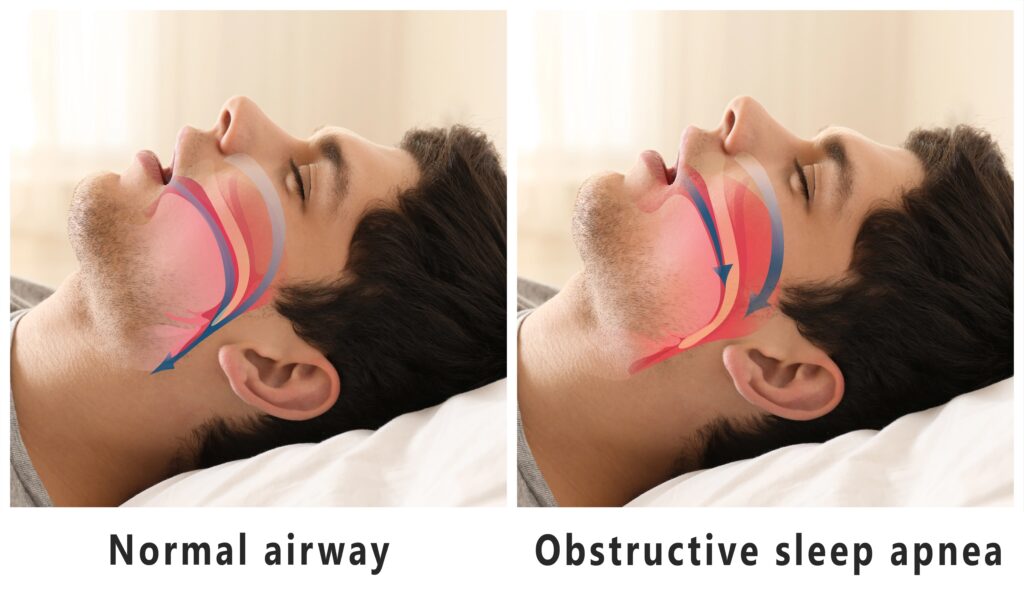What Is Sleep Apnea?
Obstructive Sleep Apnea Explained
Obstructive sleep apnea (OSA) is a disorder that causes your airways to become blocked at night. When you have sleep apnea, the muscles in your throat become relaxed when you rest, causing the soft tissues to block your airways. As a result, you may have difficulty breathing at night, which can disrupt your sleep. One of the most common signs of this disorder is loud, chronic snoring. This chronic snoring problem occurs because the muscles in the back of your throat relax, causing a narrow airway. While snoring does not always mean you have sleep apnea, excessive snoring may be an indicator. If your family members often complain about your loud snoring, it could be a sign that you need to seek treatment for sleep apnea.

At night, obstructed airways can make breathing difficult and stop oxygen flow. Apneas, the term for these pauses, can significantly affect your health and the quality of your sleep. You may not realize it, but pausing your breath at night may cause you to wake up frequently and not get enough sleep.
Untreated sleep apnea can be dangerous and put you at risk of health complications such as high blood pressure or strokes. Aside from these major risks, sleep apnea can also cause short-term complications, including daytime fatigue, irritability, and difficulty concentrating, which can make completing daily tasks more challenging and may even affect your relationships.
